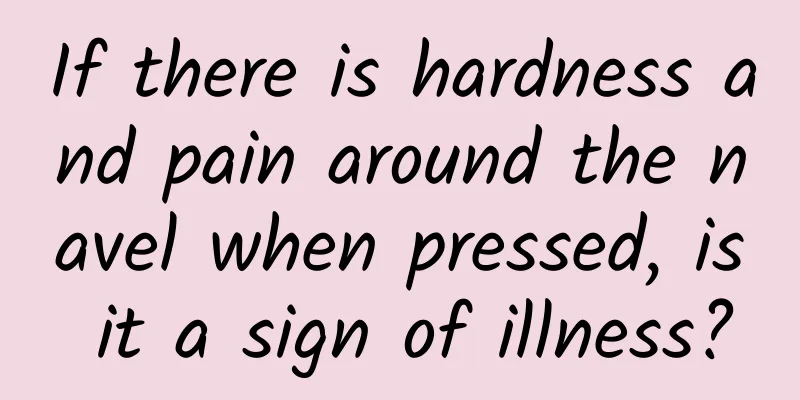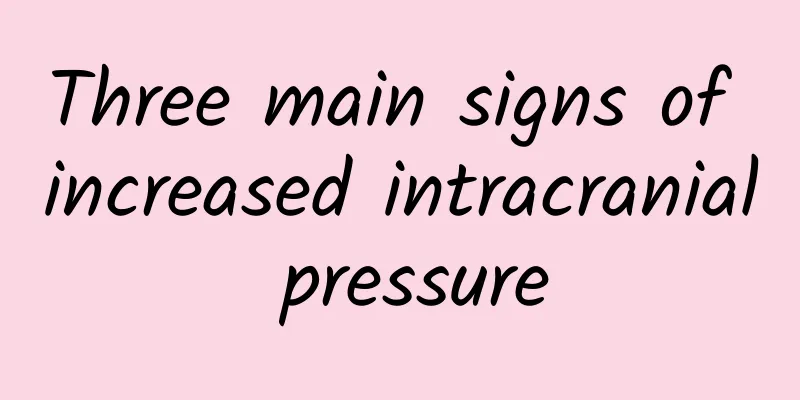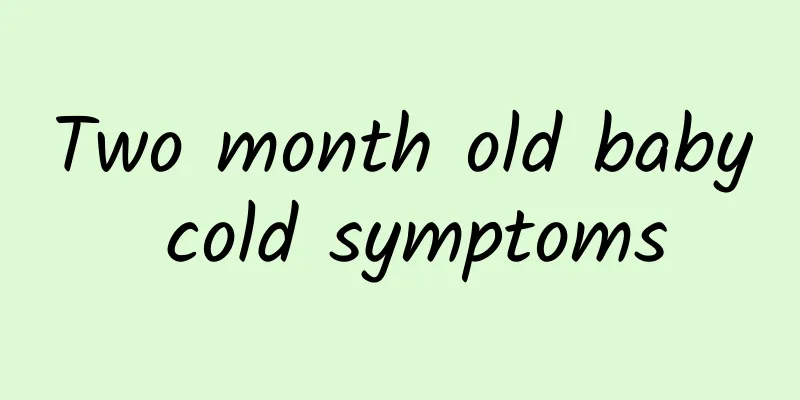Symptoms and treatment of enteritis

|
Enteritis is a relatively common disease that seriously affects our lives and work. In order to solve the harm caused by enteritis, we hope that everyone can learn more about relevant treatment methods in daily life, so as to improve our understanding of enteritis. Below is an introduction to the symptoms and treatments of enteritis. I hope you can take some time to read it and record some treatment methods. Many diseases are caused by our failure to pay attention to our lifestyle, diet, and daily routine. Therefore, if we want to prevent the occurrence of diseases, the key lies in our own control ability, whether we have sufficient medical knowledge and good life literacy. Symptoms and treatment of enteritis Nausea, vomiting and diarrhea are the main symptoms of acute gastroenteritis. Why does acute gastroenteritis cause vomiting and diarrhea? This is caused by nerve reflex. In acute gastroenteritis, bacteria, toxins or inflammation of the gastrointestinal mucosa stimulate the receptors in the digestive tract, and impulses are transmitted to the vomiting center in the medulla oblongata, causing excitement of the vomiting center. The impulses reach the stomach, diaphragm, respiratory muscles, abdominal muscles, pharynx, palate, epiglottis, etc. through the efferent nerves, causing a series of coordinated movements that constitute the vomiting action. At the same time, due to the inflammatory stimulation of the intestinal mucosa, the intestinal contents increase, which directly or reflexly causes increased intestinal motility and reduced absorption function, resulting in diarrhea. Since vomiting and diarrhea have a certain protective effect on the human body under certain circumstances, different measures should be taken clinically according to different situations. For example, in case of food poisoning or accidental ingestion of poison, not only should antidiarrheal drugs not be given, but on the contrary, emetics and laxatives should be given to promote the excretion of poison. If vomiting and diarrhea are caused by gastrointestinal inflammation, in order to reduce the adverse effects of water-salt metabolism and electrolyte imbalance on the body, antiemetic and antidiarrheal treatments should be given while actively treating the cause. Patients with chronic enteritis Chronic enteritis refers to chronic inflammatory diseases of the intestines, which may be caused by infections with microorganisms such as bacteria, fungi, viruses, protozoa, or by allergies, hypersensitivity reactions, etc. The clinical manifestations are long-term chronic or recurrent abdominal pain, diarrhea, indigestion, etc. In severe cases, there may be mucus or watery stools. Medication Viral enteritis generally does not require pathogen treatment and can heal on its own. Antibiotics are generally not used for enterotoxigenic bacterial enteritis. For invasive bacterial enteritis, it is best to select antibiotics based on the results of bacterial drug sensitivity tests. When suffering from bacillary dysentery, because Shigella dysenteriae is widely resistant to commonly used antibiotics, the general choices are co-sulfamethoxazole (cotrimoxazole), pipemidic acid, gentamicin, amikacin, etc. Campylobacter jejuni enteritis can be treated with erythromycin, gentamicin, chloramphenicol, etc. Yersinia enterocolitica enteritis is generally treated with gentamicin, kanamycin, co-trimoxazole, tetracycline, chloramphenicol, etc. Patients with mild Salmonella enteritis may not need antibiotics, while patients with severe cases can use chloramphenicol or trimethoprim-sulfamethoxazole. Invasive Escherichia coli enteritis can be treated with neomycin, colistin and gentamicin with good results. Amoebic dysentery, enteritis caused by Giardia lamblia and Trichomonas can be treated with metronidazole (Flagyl). Schistosomiasis can be treated with praziquantel. Oral nystatin is effective in treating Candida albicans enteritis. In fact, in life, many people do not have the correct treatment methods, which leads to many patients failing to treat enteritis in time, causing the disease to further deteriorate. Therefore, we recommend that you take time to read more related articles and improve your prevention knowledge, which can effectively help us treat some common diseases and better ensure our health. |
>>: Chinese medicine for acne treatment
Recommend
What to do if your throat is blocked due to anxiety
After suffering from anxiety disorder, there will...
What are the symptoms of cerebral palsy in babies under five months old?
Cerebral palsy is a congenital disease that bring...
How to treat Henoch-Schonlein purpura
Allergic purpura is mainly a change in the inflam...
Can cactus cure stomach problems?
The treatment of stomach problems relies on 30% t...
The effect of drinking Sophora flavescens soaked in water
Sophora flavescens is a very common medicinal mat...
Summer weight loss Chinese medicine teaches you to massage the four major acupoints and parts
The hot summer is coming, and many people are wea...
What are the symptoms of Qi deficiency cold? How should you take care of yourself when you have a cold?
Cold is a common infectious disease in life. It a...
When is the best time to eat kudzu root powder?
Speaking of Pueraria powder, I believe many peopl...
Medicine for hiccups
We all know that hiccups are a process of rising ...
What should I do if I have lumbar pain? Where to massage?
The problem of lumbar pain can be serious or mino...
What to do if acne breaks out on the chin
Many women will be very troubled when they hear t...
Half dry and half watery stool
The stool is half dry and half watery, mainly bec...
What are the rehabilitation treatments for ankylosing spondylitis?
Ankylosing spondylitis is a type of seronegative ...
Who is not suitable for buckwheat pillows?
Buckwheat pillows are not only cool in summer, bu...
Nasal polyps
Nasal polyps are a common type of polyp disease. ...









